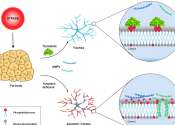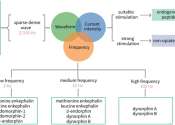Researchers reveal the proteins that shield the body against its own immune attacks
Researchers at EPFL reveal how Drosophila's Turandot proteins protect against immune self-harm. The study is the first to identify some proteins that protect against antimicrobial peptides offering insights into cellular ...
Mar 26, 2024
0
48









